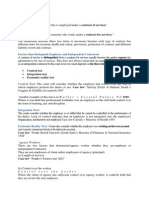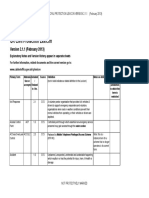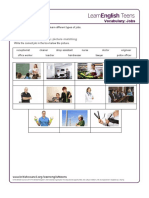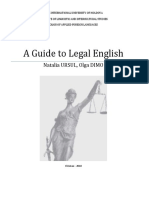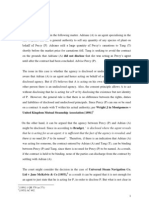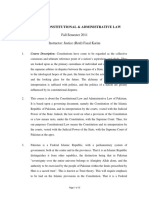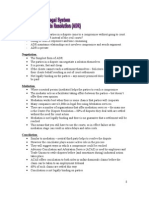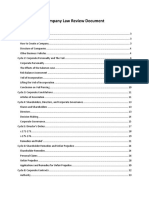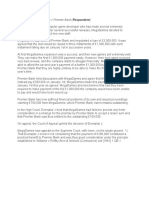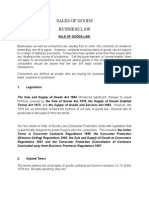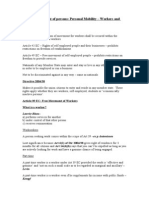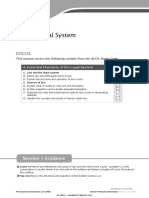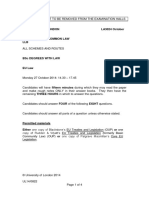0% found this document useful (0 votes)
235 views1 pageEmployment Rights and Safety
This document outlines key distinctions between employees, workers, and independent contractors in UK employment law. It discusses the importance of distinguishing between an independent contractor and employee, as employers are not liable for harm caused by independent contractors to third parties. The rights and obligations of employees and employers are also summarized, including an employer's duty to provide written terms of employment, pay agreed wages, maintain trust and confidence, and ensure workplace safety.
Uploaded by
ampriestCopyright
© © All Rights Reserved
We take content rights seriously. If you suspect this is your content, claim it here.
Available Formats
Download as PDF, TXT or read online on Scribd
0% found this document useful (0 votes)
235 views1 pageEmployment Rights and Safety
This document outlines key distinctions between employees, workers, and independent contractors in UK employment law. It discusses the importance of distinguishing between an independent contractor and employee, as employers are not liable for harm caused by independent contractors to third parties. The rights and obligations of employees and employers are also summarized, including an employer's duty to provide written terms of employment, pay agreed wages, maintain trust and confidence, and ensure workplace safety.
Uploaded by
ampriestCopyright
© © All Rights Reserved
We take content rights seriously. If you suspect this is your content, claim it here.
Available Formats
Download as PDF, TXT or read online on Scribd
/ 1
